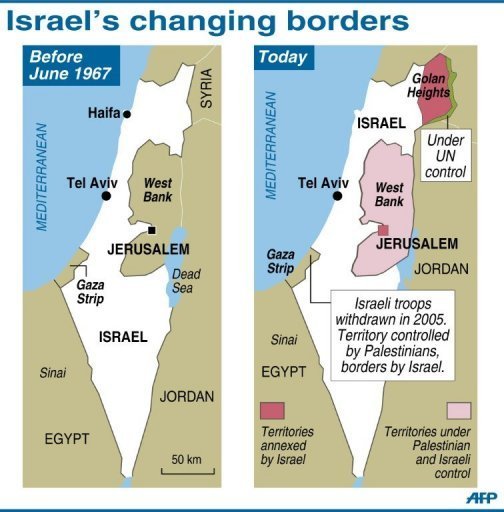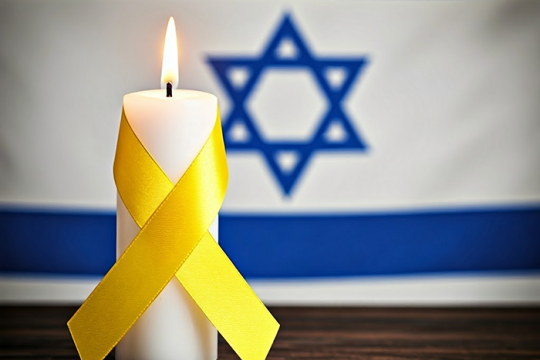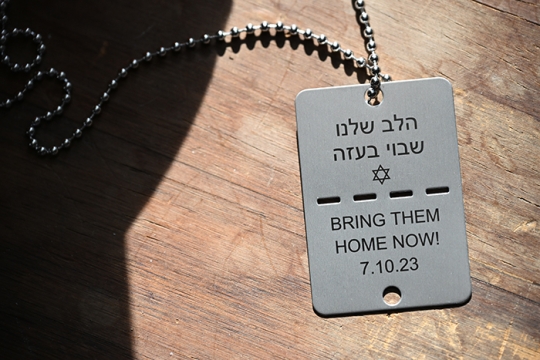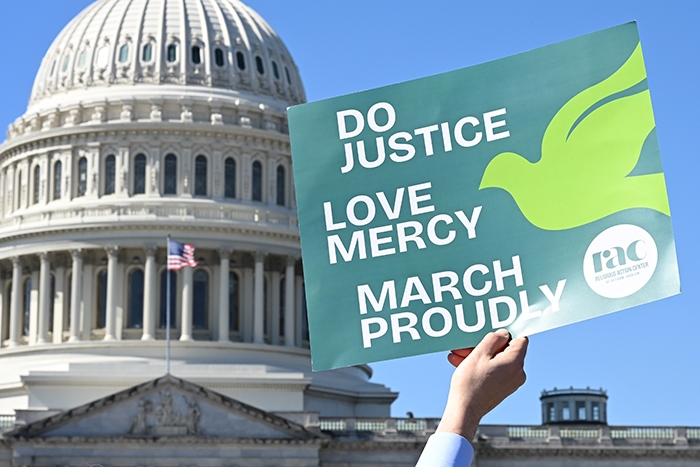This is the third in a series of posts outlining some of the core issues related to the Israeli-Palestinian Conflict and the Reform Movement’s positions on these issues. Click here to read the introduction to the series, click here for a post on Israel’s security needs and click here for posts on refugees and Jerusalem.
One of the most pressing questions for those seeking a secure, viable and peaceful two-state solution is what those states would look like. When negotiating an Israeli-Palestinian border, is there a way to answer to the concerns of all involved?
Today, Israel’s borders take into account a number of pivotal historical moments. These include the armistice at the end of Israel’s War of Independence, which established the Green Line (also known as the 1967 Borders) and Israel’s victory in the 1967 Six Day War, when territorial gains tripled the country in size. They also include the 1979 Camp David Accords, a deal with Egypt in which Israel withdrew from the Sinai in exchange for peace and recognition, and Israel’s 2005 unilateral withdrawal from Gaza.

Image 1 Courtesy of AFP
As negotiators have worked to draw a border that responds to both Israeli and Palestinian claims to the land, a couple of issues have emerged as particularly contentious. As discussed in the previous post, Israelis are concerned about the possibility that any territory they relinquish might fall into extremist hands and are looking for strong security assurances in exchange for giving up land.
The future of settlements is also a major sticking point. There are over 120 settlements in the West Bank, with over 350,000 residents. Some were established by national-religious Israelis with ideological motives, while others were built in strategic areas close to the Green Line and attract families in search of affordable housing. Some are recognized and supported by the Israeli government, while others are outposts that are illegal under Israeli law. Regardless of their status in Israel or internationally, settlements pose a challenge when attempting to draw a border. If future borders do not include some settlements, would Israel have to forcibly remove the settlers living there or leave them under Palestinian sovereignty? Such a decision would be extremely challenging for any Israeli political leader to make.
In previous negotiations, Israel has been able to offer territory equal in size to 95% of the West Bank while retaining sovereignty over most settlers by “swapping” uninhabited land on the Israeli side of the 1967 borders to include them in a future Palestinian state. This report and interactive map, created by the Washington Institute for Near East Policy, explains how land swaps work and details some possible border proposals.
According to a 2004 URJ resolution on challenges facing Israel, “demographic realities reveal that Israeli settlements in the territories complicate the feasibility of a two-state solution, the only solution that provides for a democratic Jewish state of Israel living in peace and security.” This is why the URJ has called upon Israel to take the “politically wise and morally right action” of freezing settlement construction.
To learn more about the peace process and the Reform Movement’s position, watch for other posts in this blog series. You can also visit the RAC’s Israel Issue Page and the URJ’s Israel Engagement Page for more information.
Feature image courtesy of Escla, Wikipedia.
Related Posts

Marking this Moment: Resources for the Release of the Hostages

A Shabbat Message


